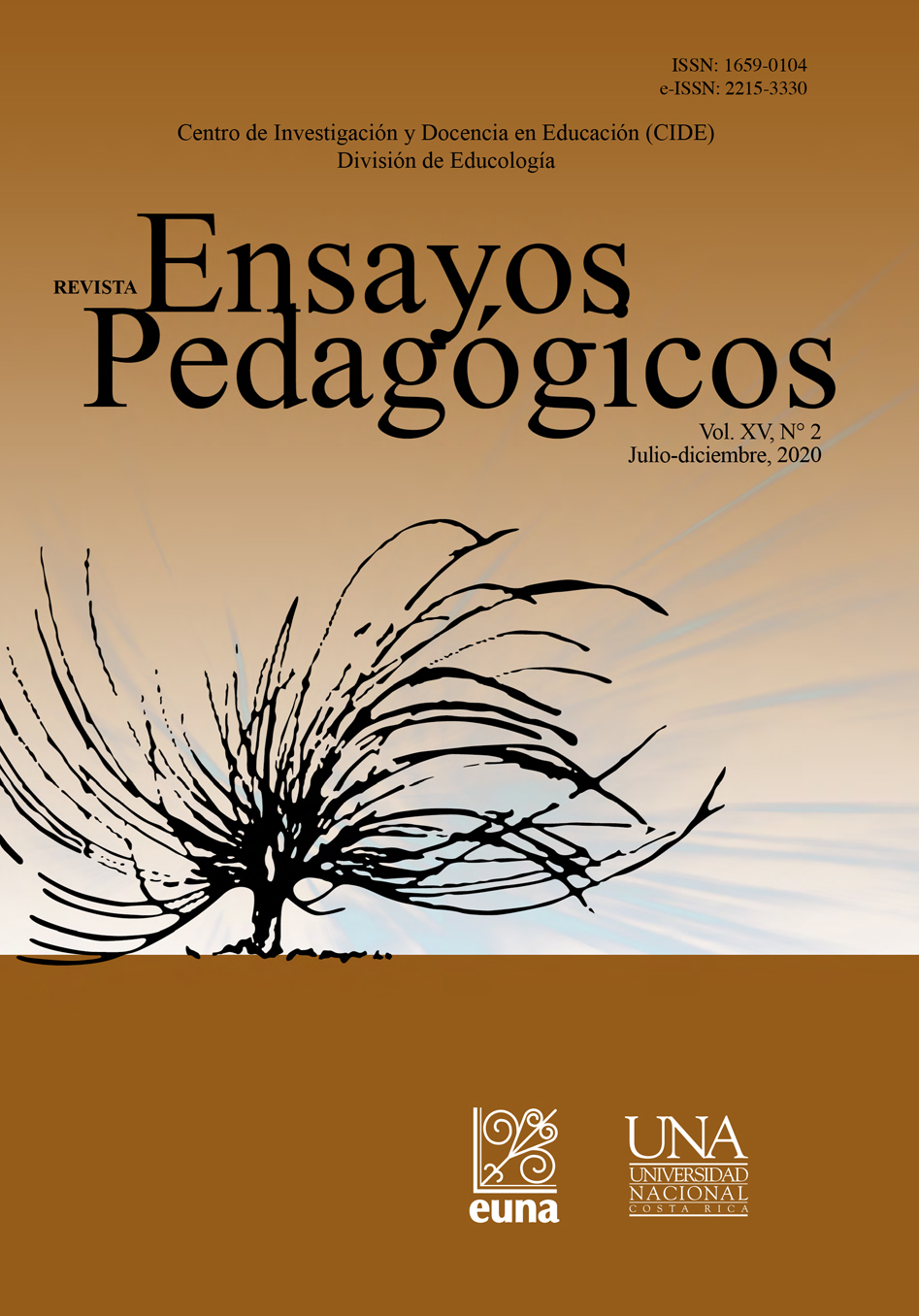The Cellphone as a Support Tool in the Learning Process of Non-Indigenous and Indigenous Students of the North Huetar and Caribbean Branch Campuses of Universidad Nacional, Costa Rica
DOI:
https://doi.org/10.15359/rep.15-2.7Keywords:
information technology, mobile communication, higher education, indigenous populationAbstract
The use of the smartphones in the classroom setting, as support for the learning process by students of the Northern Huetar and Caribbean Regional Branch of the National University, Costa Rica, is substantially increasing. Knowing the way in which this population, particularly the indigenous population on this Campus uses this tool, allows showing how to address the teaching practice to benefit from its use. Due to this, and based on the interdisciplinary and complexity theories, a descriptive study was conducted in which the systematization of the teaching practice was the starting point, complemented by a statistic sample of the students from the advanced levels of the different majors by the application of a questionnaire, to establish behavior patterns in smartphones use. Among the main findings of the study, it was found that smartphones are used as a tool by both populations in the same way, mainly for research purposes. Still, the ease and incentives from the university faculty are not enough; this calls to educate and to train in the introduction and use of these technological devices in the classroom.
References
Barrantes, R. (2005). Investigación: Un camino al conocimiento. San José: EUNED.
Calderón, P., León, R. y Montero, S. (2019). Enfoques histórico y sociológico en los procesos de enseñanza/aprendizaje de la gestión del patrimonio para el turismo. Journal of Tourism and Heritage Research, 2, 140-160. Recuperado de http://www.jthr.es/index.php/journal/article/view/46/77
Gaceta. (2015). Aprobación del Reglamento de Secciones Regionales y Transición de la Sección Regional Huetar Norte y Caribe, Producto de la Implementación del Nuevo Estatuto Orgánico. Alcance N.º 6 A la UNA-GACETA 14-2015
García, R. (2006). Sistemas complejos: conceptos, métodos y fundamentación epistemológica de la investigación interdisciplinaria. Barcelona: Gedisa.
Hernández, R., Fernández, C. y Baptista, P. (2006). Metodología de la Investigación. Cuarta Edición. México: Mc Graw Hill.
Instituto Nacional de Estadísticas y Censo. (2018). Costa Rica en Cifras. Recuperado de http://www.inec.go.cr/sites/default/files/documetos-biblioteca virtual/recostaricaencifras2018.pdf
Organista-Sandoval J., McAnally L. y Lavigne G. (2013). El teléfono inteligente (smartphone) como herramienta pedagógica. Revista de Innovación Educativa, 5(1), 6-19. Recuperado de http://www.udgvirtual.udg.mx/apertura/index.php/apertura/article/view/372/311
Organista-Sandoval, J., Serrano-Santoyo, A. y McAnally-Salas, G. (2013). Apropiación y usos educativos del celular por estudiantes y docentes universitarios. Revista Electrónica de Investigación Educativa, 15(3), 138-156. Recuperado de http://redie.uabc.mx/vol15no3/contenido-organistaetal.html
Programa Estado de la Nación en Desarrollo Humano Sostenible. (2018). Informe estado de la Nación. San José, CR: PEN-CONARE. Recuperado de https://www.estadonacion.or.cr/2018/assets/en2018.pdf
Ramos, A. I., Herrera, J. A. y Ramírez, M. S. (2010). Desarrollo de habilidades cognitivas con aprendizaje móvil: un estudio de caso. Revista Comunicar, 17 (34), 201-209.
Rivera, R. y Porra, A. (2018). Población empleo y pobreza de los territorios rurales de Costa Rica. Revista Rupturas, 8 (2), 59-76. Recuperado de https://investiga.uned.ac.cr/revistas/index.php/rupturas/article/view/2113/2476
Salazar, R. (2006). El indígena costarricense: una visión etnográfica. Cartago: Editorial Tecnológica de Costa Rica.
Ulate, G. (2006). Regiones de Costa Rica. San José: EUNED.
Valverde, J. y Acuña, K. (2011). Desarrollo local de la Región Huetar Norte. San José: EUNED. Recuperado de https://www.uned.ac.cr/extension/images/ifcmdl/CONTENIDO_2.pdf
Published
How to Cite
Issue
Section
License
Ensayos Pedagógicos is subscribed to the Attribution-NonCommertial-NoDerivatives 4.0 International Creative Commons Licence, which allows both authors and readers to freely download, store, copy, and distribute the final approved publisehd version of the manuscript (post-print) as long as this is done without commercial purposes, no derivative works are generated, and the source and author are mentioned. As well, Ensayos Pedagógicos declares that authors will remain the rightful owners of the copyrights of their work in perpetuity.







